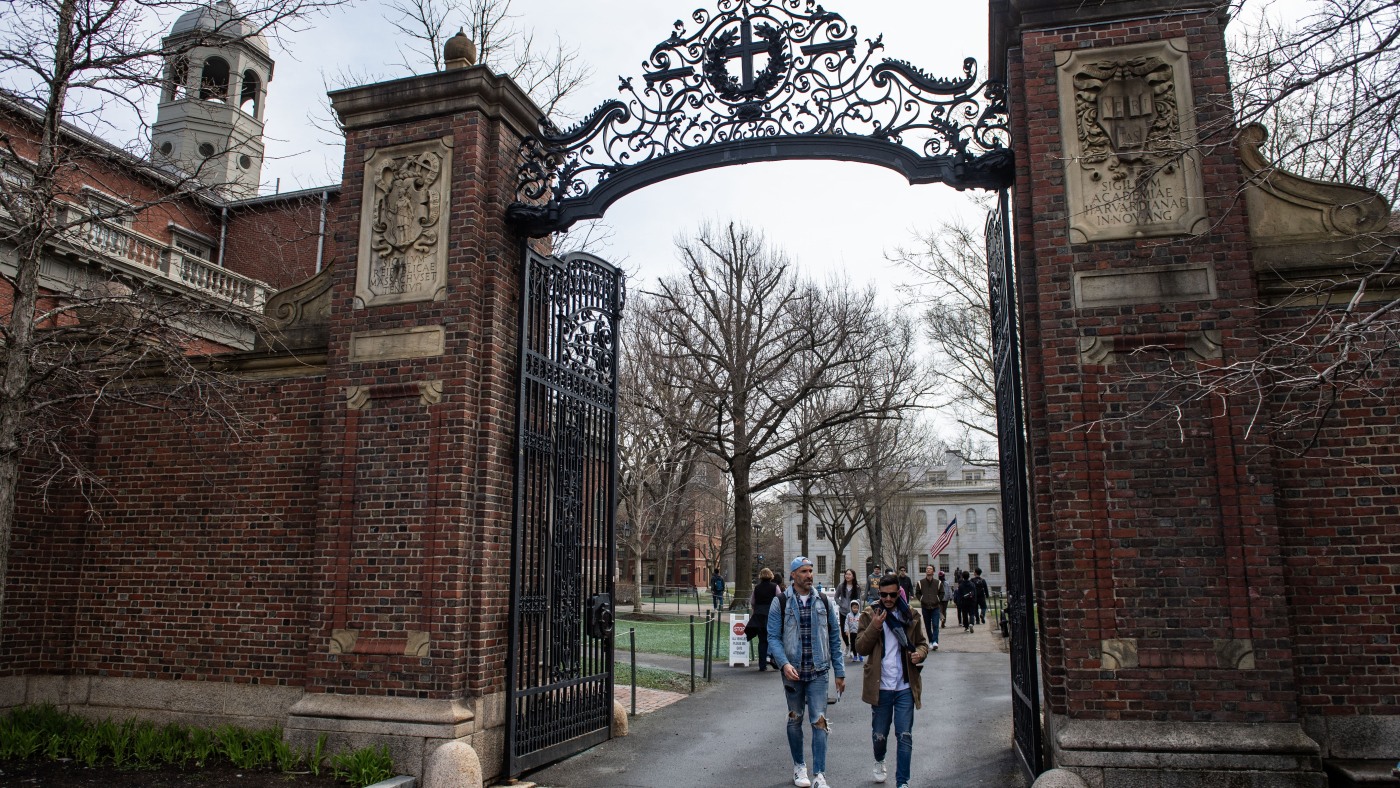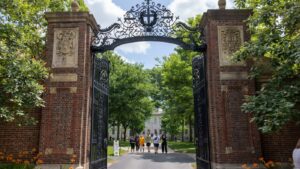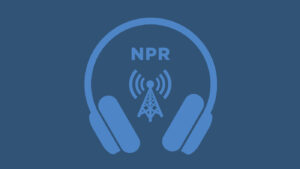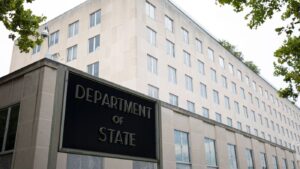
People walk through a gate as they exit Harvard Yard on the campus of Harvard University campus in Cambridge, Massachusetts, on April 15, 2025.
Joseph Prezioso/AFP/Getty Images
hide caption
toggle caption
Joseph Prezioso/AFP/Getty Images
President Trump’s administration has taken a bold step by cutting over $2 billion in federal funding for Harvard University. This move comes after the university refused to comply with a set of demands issued by the government.
These demands aimed at addressing alleged anti-Semitism on campus include changes in governance, hiring, and admissions processes. Harvard’s refusal has led to threats of revoking its tax-exempt status, as reported on NPR.
Nikolas Bowie, a Harvard Law professor, expressed support for the university’s stance, emphasizing the importance of academic independence. “For us to change what we think is important, because of prevailing orthodoxy in the White House, would turn Harvard’s pursuit of truth, its motto, to just pursuit of popular opinion,” Bowie stated on Morning Edition.
The administration’s demands, presented last Friday, warned of a potential $9 billion funding cut should Harvard fail to comply. Harvard’s president, Alan Garber, firmly rejected these conditions in a response issued on Monday. This triggered an immediate freeze of $2.2 billion in grants, followed by threats on social media from the President himself.
The potential impact of these cuts is significant, particularly for Harvard’s medical research and hospital operations, which receive $7 billion of the federal aid. Bowie highlighted the personal ramifications, sharing his mother’s participation in Alzheimer’s research at Harvard, expressing concern that such studies could be jeopardized.
The administration justifies its demands as efforts to tackle antisemitism, although it has also taken similar actions against other academic institutions perceived as too liberal. In recent weeks, approximately $11 billion in grants to various prestigious universities have been withdrawn.
In an interview with NPR’s Michel Martin, Bowie discussed the broader implications of these funding cuts on Harvard’s research initiatives, including critical studies on Alzheimer’s and ALS. He also addressed concerns about potential political motivations behind the targeting of specific programs.
Interview Highlights
Michel Martin: Your university has emphasized its research programs. Could you elaborate on the projects at risk?
Nikolas Bowie: Absolutely. Our scientific and medical research heavily relies on federal funding. The recent demands even targeted our International Human Rights Clinic, likely due to the administration’s disapproval of its legal positions.
Martin: The Trump administration has criticized Harvard for lacking viewpoint diversity. Does the university acknowledge this in its response?
Bowie: Faculty should guide academic content, not political pressure. While ideological diversity is essential, it shouldn’t be coerced with financial threats. Our mission remains to pursue wisdom and understanding.
Legal actions are underway against the administration’s decisions, asserting violations of First Amendment rights concerning immigration policies and funding freezes. Bowie remains optimistic about challenging these measures, citing constitutional protections against political retribution.






